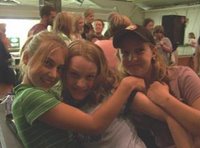As I sit at my computer contemplating the words of wisdom I’m about to share, I can hear the  peep, peep, peep of a batch of chicks incubating next to my desk. Today is the 21st day of their incubation…the day they will use their egg tooth to emerge from their brittle shells. Did you know you can hear baby chicks peep from the inside of their shells? It wasn’t until I experienced incubation first hand that I actually “understood” this and many other fascinating things about bird embryology. I must have learned about the lifecycles of birds in some of the many life science courses I took throughout my years in school. Why is it then, that this is the very first time I really “understand” the lifecycle of birds? As the famous Chinese Proverb states:
peep, peep, peep of a batch of chicks incubating next to my desk. Today is the 21st day of their incubation…the day they will use their egg tooth to emerge from their brittle shells. Did you know you can hear baby chicks peep from the inside of their shells? It wasn’t until I experienced incubation first hand that I actually “understood” this and many other fascinating things about bird embryology. I must have learned about the lifecycles of birds in some of the many life science courses I took throughout my years in school. Why is it then, that this is the very first time I really “understand” the lifecycle of birds? As the famous Chinese Proverb states:
I hear and I forget
I see and I remember
I do and I understand
With national attention focusing on reading and math, science educators have felt the need to defend the importance of hands-on science. Now, more than ever we need to share what we’ve always known about teaching and about how children learn. Science, by its nature, calls on a child’s curiosity to understand the world around them. Science teaches children how to question and how to search for the answers to those questions. Teaching hands-on inquiry-based science is important for so many reasons; here are just 10 for your consideration.
1. Because children ask and then answer most of their own questions in science, they begin to take more responsibility for their own learning. They are empowered to continue to seek answers.
2. Children learn how to organize and manage materials.
3. There’s a double benefit of interweaving content and process, which helps them to understand new ideas in any subject area.
4. Hands-on science is taught the way science is done in the “real world” – as an on-going experiment rather than a set of facts to be learned.
5. Hands-on science models the way that children learn best. This problem-based approach can and should be used in other content areas.
6. More than one method of learning is accessed and information has a better chance of being stored in the memory for useful retrieval.
7. Students remain more “on-task” because they are “part of” the learning process. This is effective for all students, but especially helpful for those with auditory deficiencies, behavioral interference or ESL learners.
8. Hands-on science is brain compatible. Students are:
· moving around and kinesthetically involved
· discussing outcomes and collaborating
· emotionally drawn into the problem being studied
9. Provides numerous critical thinking opportunities. Models Bloom’s taxonomy, which describes six levels of increasing complexity. (I could take this further, but this is an article in and of itself.
10. Hands-on science is fun! Don’t underestimate the importance of having fun in your classroom. Fun is motivating!
 Now, more than ever, we need to see that hands-on science has had it right for a long time. The 3rd grade student who germinates seeds in the dark, has irrefutable evidence from personal experience that plants do not need light to grow. “WHAT?”, you say. For years, you thought that plants always needed light to grow. Yes, well that’s true only after the stored food energy is used up. Now, do you think that a textbook would have helped your students understand that?
Now, more than ever, we need to see that hands-on science has had it right for a long time. The 3rd grade student who germinates seeds in the dark, has irrefutable evidence from personal experience that plants do not need light to grow. “WHAT?”, you say. For years, you thought that plants always needed light to grow. Yes, well that’s true only after the stored food energy is used up. Now, do you think that a textbook would have helped your students understand that?
If you would like more information about hands-on science in your classroom, contact Laurie_MacVittie@caboces.org.
--Laurie MacVittie









